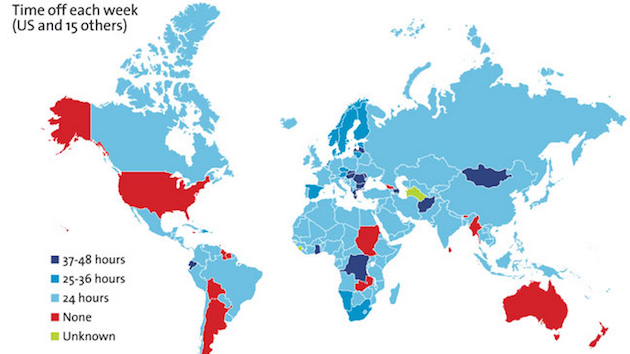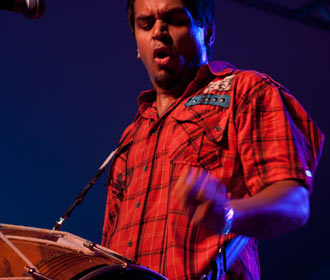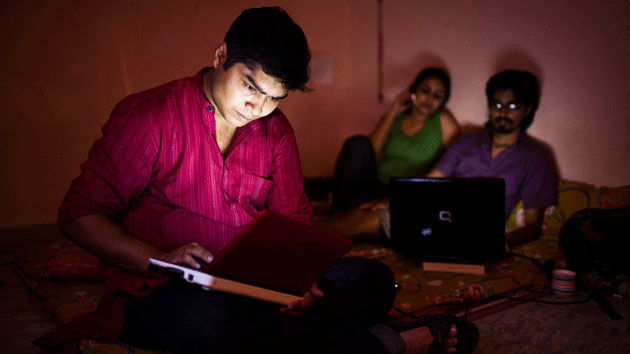
"We were asked to hate everything Indian," said 26-year-old Arnab (shown in his Delhi flat).Photographs: Sanjit Das/Panos
I stand flush against the window of a Toyota showroom, trying to stay in a shrinking sliver of shade. We’re on the cusp of midday, which, in Delhi in June, lasts most of the day and drives everyone into a languid torpor. I am waiting for a company cab, now an hour and a half late, to drive me across town to a call center, where an Indian “culture trainer” will teach me how to act Australian.
A uniformed guard next to me dozes on a stool, his rifle slumped in his lap. Behind the showroom window, which would be clear if two boys would stop rubbing it down with rags, a dozen red sedans glisten on a waxy white floor. On the dirt shoulder of the road, children hold hands as they walk to school.
Call centers don’t trust Indian infrastructure, as well they shouldn’t, so the company cab—typically a white Toyota Qualis—has become a standard industry perk. This morning a class of 24 new hires, myself included, will be ferried from all corners of the city to the offices of a small firm named Delhi Call Centre. For three weeks, a culture trainer will teach us conversational skills, Australian pop culture, and the terms of the mobile-phone contracts we’ll be peddling. Those of us who pass the training course will graduate to the calling floor. Our first job at DCC will be to interrupt Australians at dinner and ask them to switch phone providers. In the Delhi area alone, maybe 100,000 call-center agents make their living selling vitamins to Britons or helping Americans troubleshoot their printers. I am almost certainly the only one who acquired his conversational skills accidentally—by being born in the United States.
My phone vibrates. By the time I get it to my ear, a husky male voice is shouting in Hinglish, a rapid-fire blend of Hindi and English. “Meet at Toyota showroom!” I shout back.
“Fine sir, 20 minutes,” he replies.
I know “20 minutes” is a Hinglish phrase meaning “30 minutes,” so I call back after 40. A woman answers this time. “No problem, sir,” she says, “20 minutes only.” A sweat-and-sunblock solution drips down my forehead and stings my eyes. Behind me, the boys continue toweling the glass. The streaks they create blur into the streaks they wipe away.
Every month, thousands of Indians leave their Himalayan tribes and coastal fishing towns to seek work in business process outsourcing, which includes customer service, sales, and anything else foreign corporations hire Indians to do. The competition is fierce. No one keeps a reliable count, but each year there are possibly millions of applicants vying for BPO positions. A good many of them are bright recent college grads, but their knowledge of econometrics and Soviet history won’t help them in interviews. Instead, they pore over flashcards and accent tapes, intoning the shibboleths of English pronunciation—”wherever” and “pleasure” and “socialization”—that recruiters use to distinguish the employable candidates from those still suffering from MTI, or “mother tongue influence.”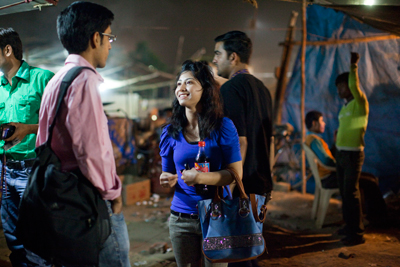 Monica Joshi, 22, kills some time before her graveyard shift at a Gurgaon call center.
Monica Joshi, 22, kills some time before her graveyard shift at a Gurgaon call center.
In the end, most of the applicants will fail and return home deeper in debt. The lucky ones will secure Spartan lodgings and spend their nights (thanks to time differences) in air-conditioned white-collar sweatshops. They will earn as much as 20,000 rupees per month—around $2 per hour, or $5,000 per year if they last that long, which most will not. In a country where per-capita income is about $900 per year, a BPO salary qualifies as middle-class. Most call-center agents, however, will opt to sleep in threadbare hostels, eat like monks, and send their paychecks home. Taken together, the millions of calls they make and receive constitute one of the largest intercultural exchanges in history.
Indian BPOs work with firms from dozens of countries, but most call-center jobs involve talking to Americans. New hires must be fluent in English, but many have never spoken to a foreigner. So to earn their headsets, they must complete classroom training lasting from one week to three months. First comes voice training, an attempt to “neutralize” pronunciation and diction by eliminating the round vowels of Indian English. Speaking Hindi on company premises is often a fireable offense.
Next is “culture training,” in which trainees memorize colloquialisms and state capitals, study clips of Seinfeld and photos of Walmarts, and eat in cafeterias serving paneer burgers and pizza topped with lamb pepperoni. Trainers aim to impart something they call “international culture”—which is, of course, no culture at all, but a garbled hybrid of Indian and Western signifiers designed to be recognizable to everyone and familiar to no one. The result is a comically botched translation—a multibillion dollar game of telephone. “The most marketable skill in India today,” the Guardian wrote in 2003, “is the ability to abandon your identity and slip into someone else’s.”
When the Qualis arrives, two hours late, I join two other new hires in the backseat. The air-conditioning vents emit an anemic trickle, as effective as an ice cube dropped into a swamp. While we idle in interminable traffic, my coworker Nishant asks where I’m from. “America?” he says. “I’ll tell you about America.”
I must look wary, because he quickly explains that, after years of 50-hour workweeks, he’s probably spoken with more of my compatriots than I have. “America is not all honey and roses the way they tell you,” he informs me. “Truth is, 90 percent of the people there, you will find, they’ll do the most stupid things, impulsive things. I know for a fact. At the same time, Americans are bighearted people, and the remaining 10 percent of them are smart. Bloody smart. That’s why they rule the world.”
Growing up in rural Haryana, Nishant got his picture of the world from grainy Sylvester Stallone movies on a neighbor’s TV. Like all the boys in his village, he dreamed of living in California. “It was a wonderland to me, where no kid goes hungry, where everyone has those fast cars, those red-colored Ford Mustangs.”
Nishant, now 26, moved to Delhi at age 18. His first job was tracking down Americans with delinquent bills. “In training they told us, ‘It’s easy. These guys have the money, they just don’t want to pay.’ They told us, ‘Threaten their credit score, Americans can’t live without good credit.'”
On his first day, Nishant donned his headset, dialed the number on the screen and was connected to a 60-year-old woman in Tennessee. She had an outstanding hospital bill for $400. “I told her, ‘Just pay this, what’s the problem?’ She told me, ‘You don’t understand, I can’t pay.'” They talked for 45 minutes, and the woman cried as she told Nishant about the Iraq War and its toll on American families. “By this time I’m crying also,” Nishant said.
The same day, he was connected with a man living in a trailer. “I told him, ‘What’s a trailer?’ He told me, ‘It’s this tin shed; it gets 90 degrees; we don’t have our own washroom.'” Nishant learned more about America that first day, he told me, than he had in his whole childhood.
When I first decided to apply for a call-center job, I headed to Gurgaon, a commercial suburb of Delhi. Gurgaon was built 30 years ago by a corporation, for corporations. It was fallow farmland until 1979, when DLF, India’s biggest developer, began buying up property. Gurgaon is a non-city. In my time there, I saw no sidewalks, convenience stores, or public parks—only stray cows foraging in the sun-baked dirt between office towers.
 A makeshift market in Gurgaon.I unfolded a scrap of paper, damp with sweat, on which I’d written the address of IBM’s outsourcing headquarters: DLF Tower, DLF Cyber City, Phase II, Gurgaon. With high attrition rates, big BPOs are always hiring [PDF]. Anyone can walk in and arrange for a job interview. Mine did not go as planned.
A makeshift market in Gurgaon.I unfolded a scrap of paper, damp with sweat, on which I’d written the address of IBM’s outsourcing headquarters: DLF Tower, DLF Cyber City, Phase II, Gurgaon. With high attrition rates, big BPOs are always hiring [PDF]. Anyone can walk in and arrange for a job interview. Mine did not go as planned.
“You’ve completed a four-year university?” the recruiter asked, pen poised above my résumé.
“Yes,” I said.
“And your stream?”
“Pardon?”
She sighed. “What did you study?”
“Religion,” I said. “Well—liberal arts.”
She made a face, scribbling something.
“What does your father do?” she asked.
“He’s a doctor.”
“And your mother is a housewife?”
“No, a doctor also.”
“A doctor also! Why didn’t you go in for that line?”
“I…I didn’t want to,” I said.
“You didn’t want to?” She could no longer hide her exasperation.
“These things are different in America,” I said feebly.
She stood and offered her hand. “We’ll let you know if anything opens up.”
In Delhi the next day, I passed a storefront banner: “Walk-In for Instant BPO Spot Offers—No Money, No Catch!” I walked in. The power was out. A young recruiter, sitting behind a desk illuminated by candles, spoke rapidly in a Monty Python-esque caricature of American twang.
“If I give you a topic,” she asked, “can you speak on it for upwards of 30 seconds? Your topic is: hometown.”
I began spewing facts about New York—”The street vendors sell hot dogs. There is a street called Madison Avenue”—until she asked me to stop.
“Fine, Andrew. Actually, we were not listening for content primarily as much as your voice tone and voice confidence and communications skills, which in fact I am happy to report is all excellent, so I am recommending you for top marks. Congratulations.” I knew she was just following the script, but I couldn’t help feeling a swell of pride. “Which means you are selected for our exclusive BPO job search course this Sunday. Which means all I’d need from you now are 500 rupees.”
I forked over the 500 rupees, which was nearly a week’s pay for the average Indian worker—but which was, on the other hand, $11.
The “skills course” consisted of a woman reading from a photocopied pamphlet while 100 of us took notes. “What is call center to you?” she bellowed. Without waiting for a response, she intoned the correct answer. “Call center is a place where”—she motioned for us to transcribe—”we render the services to the customers and”—pause, more scribbling—”queries are made out by customer-care executive.”
Over the next five hours, we sat stiffly while she recited the entire pamphlet, listing the “elements of voice modulation,” what to wear to a job interview, and the types of customers we might encounter.
“First is your eccentric!” she yelled.
“Second is your arrogant!
“Third is your bumpkin!
“Fourth is your quarrelsome!
“Fifth is your prudent!
“Sixth is your assertive!
“And seventh is your sweet-spoken!
“Now, any questions?”
“Ma’am,” said a young man in front, “you instructed us that our necktie should reach halfway down the belt buckle?”
“Yes?”
“Ma’am, I don’t have any necktie. In India we don’t wear neckties.”
“That’s true,” she said. “Other questions?”
Using my newly honed communication skills, I landed my job at Delhi Call Centre. The next day, the company cab brought us to Okhla, a muddy industrial zone on the banks of the Yamuna River, stopping at an unmarked iron gate in front of a chalky concrete bunker. We walked up stairs stained red by paan spit, under a door lintel decorated with a lucky swastika, and into a conference room that smelled of disinfectant. As we waited, I took notes: almost as many women as men, mostly middle-class and in their twenties [PDF]. Had I been Indian, I would have fit right in. As it was, my tawny hair and near-albinic skin made me a spectacle.
“What’s he doing?” a girl behind me whispered in Hindi.
“He’s writing!” her friend answered.
“Writing what?”
“I don’t know, ask him!”
 Gurgaon, an epicenter of the BPO industry, was effectively built by corporations, for corporations. After an hour of waiting, our trainer entered. Lekha was tall and rail thin, with big doll eyes. Her accent was what BPO higher-ups would call “perfectly neutral”—her vowels soft and long, her Rs a benign compromise between flipped and rolled. “Training takes three weeks,” she told us. “It’s combined accent and culture training; we’ll assume that you come to us with the accent part pretty well taken care of.” In a playfully arch tone, she rattled off the rules: no mobile phones, eating, or drinking. And she would charge us a rupee, she teased, for every non-English word she heard in the classroom. “Any questions so far?”
Gurgaon, an epicenter of the BPO industry, was effectively built by corporations, for corporations. After an hour of waiting, our trainer entered. Lekha was tall and rail thin, with big doll eyes. Her accent was what BPO higher-ups would call “perfectly neutral”—her vowels soft and long, her Rs a benign compromise between flipped and rolled. “Training takes three weeks,” she told us. “It’s combined accent and culture training; we’ll assume that you come to us with the accent part pretty well taken care of.” In a playfully arch tone, she rattled off the rules: no mobile phones, eating, or drinking. And she would charge us a rupee, she teased, for every non-English word she heard in the classroom. “Any questions so far?”
“When do we get paid?” asked a young man wearing a Nike cap, yellow-tinted sunglasses, and carefully crafted facial stubble. In New York, I would have pegged him as a party promoter from Long Island City.
“Very funny,” Lekha said. “You’ll be paid for your time, including this training, but only after you’ve stayed two months. You know the drill: We wouldn’t want people taking off as soon as training is over.”
During our first cigarette break, Mr. Long Island City revealed that, indeed, his plan was to do precisely that—he’d already gone through this routine at some 15 BPOs around Delhi. “Who needs to stay for the actual work? Plus,” he added, flashing a salacious smile, “that way you meet more girls.”
After the break, we toured the empty office—the agents weren’t due in until later. The computer terminals were of a clunky premillennial vintage. DCC, Lekha admitted, was not “one of your Dells or IBMs with fancy workstations and a McDonald’s in our cafeteria.” This reminded her of another rule: “No leaving the premises during work. You can smoke out front, but don’t leave the gates.”
On our next smoke break, I asked Mr. Long Island City if he found this rule strange. “No, it’s just for safety types,” he said. “Especially for the girls. Who knows what could happen to a girl on her own?” Another classmate had his own theory. “Out there it’s India, man,” he said, gesturing through the gate to where a goat was urinating in the street. “We go outside, and when we go back in, we bring India in with us.”
Twenty years ago, before India opened its markets to the world, career prospects were bleak. Men might have been laborers or government workers, but even the most ambitious women often gave in to social pressure and stayed home.
Dude, Where’s My Job?
More and more, US multinationals are laying off workers at home and hiring overseas.
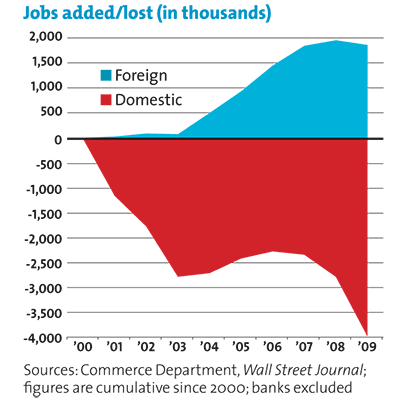 Click here for more charts showing how Americans are working more and earning less.
Click here for more charts showing how Americans are working more and earning less.
Today, almost half of BPO employees are women, many of whom outearn both of their parents. Free-market cheerleaders, conflating rising wages with rising spirits, are quick to applaud India’s “maturing” markets. But the truth is more complicated: Studies show that once people move out of poverty, increasing wealth does not necessarily lead to happiness.
Call-center employees gain their financial independence at the risk of an identity crisis. A BPO salary is contingent on the worker’s ability to de-Indianize: to adopt a Western name and accent and, to some extent, attitude. Aping Western culture has long been fashionable; in the call-center classroom, it’s company policy. Agents know that their jobs only exist because of the low value the world market ascribes to Indian labor. The more they embrace the logic of global capitalism, the more they must confront the notion that they are worth less.
At the end of each training day, the Qualis would drop me back at the Toyota showroom. From there I would walk down a narrow, unpaved lane and turn onto an even narrower alley, just wide enough (I learned the hard way) for a human to squeeze past a cow.
Like most BPO agents from out of town, I rented a room in a workers’ hostel. For the equivalent of $80 per month, I got a nine-by-six cell—a plywood double bed, a ceiling fan, and two windows covered in newspaper—plus two hot meals a day.
In the hostel I met Satish, a slight, bespectacled fellow who worked with computers and always seemed to have a head cold. One night, he grabbed my sleeve and whispered that Shail, his girlfriend, was coming to visit. She lived in a ladies’ hostel down the street, but they rarely saw each other because she worked nights at a call center. Shail, 23, had moved here from a small town in Uttar Pradesh. She had graduated at the top of her college class but always assumed she’d end up at a call center. She answered phones for Target, telling customers the balance remaining on their gift cards. The work was boring, she said, but she was “learning to feel independent” and saving up for her dowry.
Shail was bright and personable, with effortless good looks. I asked how she and Satish had met. “Online,” she said, giggling. “Yahoo Chat. He proposed without seeing me. It was so embarrassing.” Satish had selected her screen name at random and “proposed” that they date. Later, he told me he’d done the same with dozens of girls. “I never used to attend his chats,” Shail said. “But something happened; we started talking and I realized that really he is loving me. After a few months, I accepted his proposal.”
They planned to spend a few years working in Delhi before getting married and moving to Satish’s home state of Tamil Nadu. “There is slight language problem,” Shail admitted. She doesn’t speak Tamil and Satish doesn’t speak Hindi. “Even when we want to fight, we fight in English.”
When I stopped asking questions, Shail had one for me. “I have experienced some Americans—please don’t mind—they don’t like Indians. They act rude as soon as they come to know I am Indian. Why is this?” I stammered something about protectionism, but really I didn’t know what to say.
The next morning, a Saturday, I went out for a late breakfast. When I returned, there was a man sitting upright in my bed, fully clothed and fast asleep. My cell, it turned out, was now a “shared room,” and Amit was my new roommate. He was sleeping off a 36-hour triple shift at his tech-support job. For the next month, Amit and I slept side by side. The bed was wide enough that we didn’t have to touch, but we could hear each other breathing. On nights when the power cut out and the ceiling fan stopped, we would lie awake sweating and cursing and praying for relief.
I also got to know a man I’ll call Arjuna, a meaty guy with a cleft chin who rented a two-bedroom flat nearby. His hobbies included drumming (he liked The Eagles and Bon Jovi) and taking solo motorcycle trips through the Himalayas, and even in the oppressive summer heat he wore his biker outfit: black bomber jacket, black boots, a bandanna around his neck.
Arjuna told me that he spent the first half of 2003 raising funds for the GOP. As an employee of the outsourcing firm HCL, he called registered Republicans all over the United States to solicit donations. (That September, the conservative site WorldNetDaily, citing an Indian press report, reported that HCL was raising money for the “US Republican Party.” The Republican National Committee insisted that the story was false. Later, as it happened, the FEC sued a Texas-based group called the Republican Victory Committee—which employed a Delhi call center called Apex to do its fundraising—for falsely claiming that it represented the party.)
 Arjuna thought he would just work in call centers a few months. Now he’s in his thirties, feeling trapped between East and West.Arjuna told me he enjoyed fundraising but was opposed to Bush’s policies, particularly the war in Iraq. I asked whether he felt partly responsible for his reelection. “It’s a scary thought,” he admitted. “Luckily, I wasn’t very good at my job back then.”
Arjuna thought he would just work in call centers a few months. Now he’s in his thirties, feeling trapped between East and West.Arjuna told me he enjoyed fundraising but was opposed to Bush’s policies, particularly the war in Iraq. I asked whether he felt partly responsible for his reelection. “It’s a scary thought,” he admitted. “Luckily, I wasn’t very good at my job back then.”
As he recounted his subsequent eight years in the industry, his big eyes swelled with indignation. He’d only intended to work in the call centers for a few months. At 34, he felt stuck. He was still at HCL, doing customer support for British Telecom. “All this time ‘perfecting my skills,'” he said bitterly. “What skills? Accent and diction? How will that lead to a career?”
Growing up in Kolkata, Arjuna never got along with his parents. “In America, you guys move away from your family after high school or college,” he said, “but not here.” His family expected him to stay at home, work at the bank where his father worked, and marry his high school sweetheart. Instead, he shocked everyone by moving to Delhi. BPOs aligned with his individualist streak; culture training taught him about societies where young people lived as they pleased. He impressed coworkers with his American accent, and when he got his first paycheck, he tasted the liberating power of disposable income.
Soon, though, his hobbies began to feel hollow. He had lost touch with his family and made few friends. His high school sweetheart stayed in Kolkata and met another guy, but Arjuna had not found a girlfriend in Delhi.
During our second day of culture training, Lekha dissected the Australian psyche. It took about 20 minutes.
“Just stating facts, guys,” Lekha began, as we scribbled notes, “Australia is known as the dumbest continent. Literally, college was unknown there until recently. So speak slowly.” Next to me, a young man in a turban wrote No college in his notebook.
“Technologically speaking, they’re somewhat backward, as well. The average person’s mobile would be no better than, say, a Nokia 3110 classic.” This drew scoffs from around the room.
“Australians drink constantly,” Lekha continued. “If you call on a Friday night, they’ll be smashed—every time. Oh, and don’t attempt to make small talk with them about their pets, okay? They can be quite touchy about animals.”
“What kind of people are there in Australia?” a trainee asked. “What are their traits?”
“Well, for one thing,” Lekha said, “let’s admit: They are quite racist. They do not like Indians. Their preferred term for us is—please don’t mind, ladies—’brown bastards.’ So if you hear that kind of language, you can just hang up the call.”
Thus ended our lesson in Australian sociology. We moved on to geography. Lekha drew a circle on the board and carved it into portions. “Now, I suppose we all know Australia is divided into six states?” I was the only person, it seemed, who did not know this. After 10 minutes, everyone except me understood Australia’s geography, so we moved on to brainstorming “English aliases.” At work, Lekha explained, we would answer to non-Indian names—”except Andrew can stick with Andrew.”
Some people picked names that sounded like their own (Adarsh became Adam), while others took the name of a favorite celebrity. One young man, a smoker, chose “Joe” in honor of Joe Camel. Lekha advised us not to use the phrase “call center” during sales calls; we were also not to say where we were, or what time it was, unless asked directly. Call-center worker Monica Joshi shops on a day off.
Call-center worker Monica Joshi shops on a day off.
With an hour to kill before lunch, Lekha steered the conversation my way. Was it really true that I was staying in an Indian workers’ hostel?
“That’s right,” I said.
“You didn’t want to live with other expats?” she asked.
“Not really,” I said. “Most expats just order in Domino’s and complain about the heat. I wanted to have a fuller experience.”
“So you have something against your fellow countrymen?” she asked. My trainer and coworkers thought it perfectly natural that white people should want to self-segregate and eat bland food.
During lunches and breaks, I chatted with coworkers. Vidya was 19 but looked younger. She had been a top chemistry student but had taken an indefinite leave from university to make money for her family. She wore hip-hugging jeans and T-shirts bedazzled with messages like “No Angel,” and she spent most of her breaks flirting with Mr. Long Island City. Soon the other women—especially the few who were married, in their thirties, and wore traditional salwar kameez—started spending their breaks gossiping about Vidya.
Mittu from Chennai wore black jeans, steel-toed boots, and a charm bracelet. Looking closely at his bracelet, I saw a peace sign, a marijuana leaf, the anarchist “A,” and a swastika—not the Hindu kind. “You know this is the Nazi one, right?” I asked. Mittu grinned. “I just bought it for the pot leaf.”
I was the only one in my class who had never worked at a BPO. Everyone else had stories from their old jobs, which they called “processes.” Nishant, who asked the lady in Tennessee to pay her hospital bills, had worked in a “collections process.” Nidhi preferred “inbound processes” (taking calls) to “outbound processes” (placing calls) because she didn’t like bothering people. Almost everyone had worked in a process doing “hardcore sales,” which made me imagine a porno starring Willy Loman.
I said, ‘Then this Paki would be helping you fix your computer.'”
Rohan and Sube, who hailed from neighboring villages in Madhya Pradesh, told me that “fake process” (a.k.a. phishing) was their favorite. “All it is,” Rohan explained, “is you call American clients. Tell them, ‘US government is giving away free money!'”
“You say that—’free money’—and just watch how people respond,” Sube agreed.
Rohan continued, “You tell them, ‘Just provide me your information and don’t worry, I’ll fill the forms, you sit back. You just pay us for our services.'”
“Really there are no forms and no services,” Sube said, his eyes sparkling. “They tell their information over the phone and you don’t even write it, you just write the credit card. We take our commission. Next week, the company disconnects the phone.”
My coworkers were happy to give me a rundown of the different nationalities they’d encountered. “Britishers get angry,” said Nidhi. “Still, they are subtle—they’ll say something sarcastic under the breath.”
“Americans will just shout at you,” Sube said. Mittu agreed: “I have only been cursed by Americans. They are sharp-witted and very articulated and yet very free with their anger.”
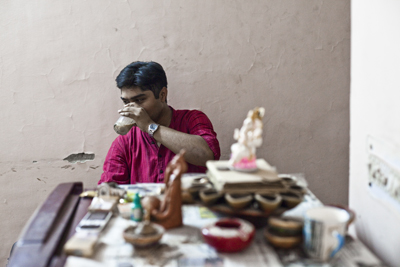 Arnab saw culture training as a weak brainwashing attempt, noting: They “hardly took the Indian out of us.”Most customers are well-behaved, they assured me. Still, each agent had a stockpile of best- and worst-call anecdotes. “I remember quite well this guy who just called me up and said out of nowhere, ‘You fucking Paki,'” Arnab told me during a break. “We don’t take those things personally; it’s part of the job. So I just said, very calmly, ‘Yes sir, if I am a Paki, then this Paki would be helping you fix your computer.’ By the end of the call, he apologized and gave me a five-star feedback rating.”
Arnab saw culture training as a weak brainwashing attempt, noting: They “hardly took the Indian out of us.”Most customers are well-behaved, they assured me. Still, each agent had a stockpile of best- and worst-call anecdotes. “I remember quite well this guy who just called me up and said out of nowhere, ‘You fucking Paki,'” Arnab told me during a break. “We don’t take those things personally; it’s part of the job. So I just said, very calmly, ‘Yes sir, if I am a Paki, then this Paki would be helping you fix your computer.’ By the end of the call, he apologized and gave me a five-star feedback rating.”
With his pomaded hair, pearly white teeth, and habit of clapping me genially on the back, Arnab could have passed for a US congressman. Only after several conversations did I learn that as a student at the prestigious Jawaharlal Nehru University, he was a Marxist activist. He worked in BPOs because his family needed money, but his dream was to organize the workers. “Not all at once,” he said. “Just steadily, over time, I’m thinking how to bring down the system from the inside. Meantime, I’m happy to cash their paycheck.”
In the end, I didn’t stay to complete the training—visa issues—but I kept in touch with some of my DCC coworkers. Most of them had quit soon after I left, for higher-paying jobs. A year later, I tracked down Arnab, who was happily employed at Dartnell Publications, a Florida-based corporation with a Delhi office. He worked East Coast hours writing newsletters about management strategies. He now peppered his speech with phrases like “take it easy” and “no worries” and signed his emails “Joe.” (He now works for the History Channel.)
Arnab, who still considers himself a Marxist, told me he had come to view culture training as an inept attempt at brainwashing. “Yes, we were asked to hate everything Indian and love everything Western, but we never really took it seriously,” he said. The trainers asked him to eat American fast food and listen to American music, even on weekends. One BPO installed an American-style water fountain, which confounded the employees. “But that hardly took the Indian out of us.”
Arjuna was more conflicted. In a long Facebook chat, he told me he was still stuck in the same customer-support job, still verging on depression, and still single. He never could figure out how to date casually, as Americans do; nor could he bring himself to use the matrimonial websites popular in India. “To me, arranged marriage is a joke,” he said.
In a sense, Arjuna is too westernized to be happy in India. He speaks with an American accent, listens to American rock music, and suffers from American-style malaise. In his more candid moments, he admits that life would have been easier if he had hewn to the traditional Indian path. “I spent my youth searching for the real me,” he says. “Sometimes I feel that now I’ve destroyed anything that is the real me, that I am floating somewhere in between.”
